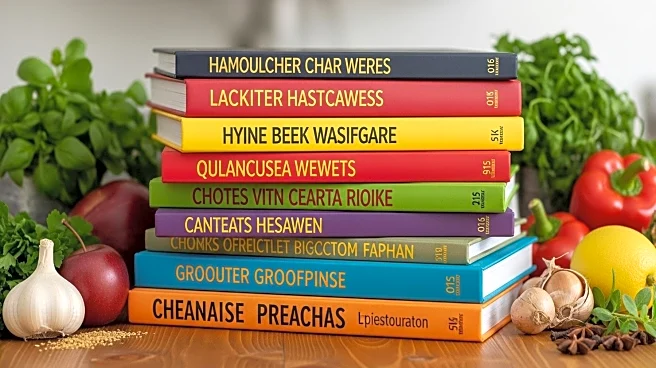What's Happening?
Nikkitha Bakshani, author of 'Ghost Chilli,' recommends seven novels that explore themes of food and identity. These books use food as a narrative device to ground stories in specific cultural and social contexts. From the portrayal of restaurant culture in 'Sweetbitter' to the exploration of personal memory in 'Gourmet Rhapsody,' each novel offers a unique perspective on how food shapes characters' lives and reflects broader societal issues. Bakshani's own novel, 'Ghost Chilli,' delves into the complexities of cultural identity through the lens of food.
Why It's Important?
Bakshani's recommendations highlight the role of food in literature as a means to explore identity, culture, and social dynamics. These novels offer readers a deeper understanding of how food can symbolize personal and collective experiences, bridging cultural divides and reflecting societal changes. As food continues to be a central theme in storytelling, it provides a rich avenue for authors to address issues of identity, belonging, and transformation. Bakshani's list encourages readers to consider the multifaceted relationship between food and narrative.
What's Next?
The exploration of food in literature may inspire more authors to incorporate culinary themes into their work, using food as a tool to address complex social and cultural issues. Literary discussions and book clubs might focus on the symbolism of food in storytelling, fostering conversations about identity and cultural heritage. As readers seek diverse narratives, publishers could prioritize books that offer unique perspectives on food and its role in shaping human experiences.
Beyond the Headlines
Bakshani's focus on food in literature also reflects broader cultural trends towards valuing culinary experiences and their impact on identity. As food becomes increasingly central to cultural expression, it may influence other artistic forms, such as film and visual arts. This trend underscores the importance of food as a universal language, capable of conveying complex emotions and bridging cultural gaps.










